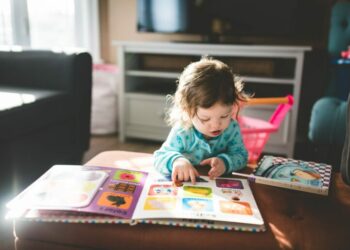Chances are, you know at least one child who’s autistic — approximately one in 44 kids are, according to the Centers for Disease Control and Prevention (CDC). If your kids attend a school with 500 students, on average there will be 11 or 12 autistic kids amongst your children’s peers. Curiously, trends suggest that autism is being identified in kids at higher rates than ever before. In the early 2000’s, the CDC reported that one in 150 children were autistic. By 2004, the prevalence rose to one in 125 and to one in 88 by 2008. So with new parents more likely than ever in the past to have a kid who’s autistic, it’s not uncommon to wonder: What causes autism?
“Everybody wants to know what is causing this perceived increase in autism,” says Cathy Guttentag, Ph.D., a child psychologist and associate professor of pediatrics at the University of Texas McGovern Medical School in Houston. “There’s still some debate” about what’s driving these changes, she notes. “Are there really more children with autism, or are we just getting better at diagnosing it? And because we’ve broadened the spectrum of who gets diagnosed with autism, is that why the numbers are going up?”
Although some uncertainty exists in these changing autism rates, there are a few key things that researchers have shown don’t cause autism, even though many people may believe in these myths. Here are three things that don’t cause autism, despite many people falsely believing that they do.
Vaccines Don’t Cause Autism
The misinformation that vaccines cause autism — which originated with a 1998 article in The Lancet, “a very well-respected British medical journal,” — has been repeatedly debunked, Guttentag says. In fact, study author Andrew Wakefield, who, along with his colleagues “claimed that there was a causal link between the MMR [measles, mumps and rubella] vaccine and autism,” lost his medical license.
“The original study was found to be highly flawed. For example, it only included 12 children who were handpicked by Dr. Wakefield,” Guttentag says. The researchers “actually falsified facts, so the whole thing was a fraud. It took quite a long time for The Lancet to finally retract the article, but they did in 2010.”
Still, that article “was widely publicized and had a really devastating effect on parents’ confidence in vaccines,” Guttentag says.
But the flaws in Wakefield’s study aren’t the only evidence that vaccines don’t cause autism. “The medical community went to great pains to conduct research with thousands of individuals and look at thousands of people’s data” to ensure that “indeed, there wasn’t a correlation with vaccines. This is one of the most well-researched questions out there, and studies have repeatedly found that there is not a significant correlation between vaccines and autism,” she says.
If you’re still feeling apprehensive about getting your child vaccinated, Guttentag recommends discussing your concerns with a pediatrician you trust to help you make decisions. “Not vaccinating is a serious choice,” she says. “By not vaccinating your child against preventable and dangerous diseases, you’re really putting your child at risk for preventable diseases that we do know impact children’s health [and] can lead to serious illness, hospitalization, even death.”
Bad Parenting Doesn’t Cause Autism
The incorrect idea that bad parenting causes autism originated in the 1940’s. “Child development professionals were just starting to try to figure out what autism was,” Guttentag says. Those researchers blamed children’s social and developmental differences on their caregivers, most often their mothers.
“People assumed that ‘Well, this mom just must not be taking good care of her children or must not be emotionally warm and sensitive,’” Guttentag says. “That did a lot of damage to parents who were doing their very best with these little kiddos who were developing atypically and then they were getting blamed for what really turns out to be a neurodevelopmental disorder,” she says.
Fortunately, with time and more public awareness, more people now seem to understand that bad parenting doesn’t cause autism. However, parents of autistic children may still experience stigma about their parenting, such as when their child is having an autistic meltdown in public.
Environmental Factors Don’t Cause Autism On Their Own
Research shows that genetics play a strong role in autism. “There’s a consensus now that this is largely a genetically driven process and that it is probably something that happens as early as in utero or very early in development,” Guttentag says. “Even if you don’t see all the signs in an infant and if there are changes in behavior in toddlerhood, the propensity is there very early on.”
Researchers have found that autism has a genetic component about 80% of the time. But “you might have a genetic predisposition to something but then something else has to happen to bring it to fruition,” Guttentag explains. Researchers are still working to understand what other factors contribute to people being autistic.
Certain factors are known to increase the chances that a child will be autistic. But these factors — such as having older parents when they’re born or being born to a parent who has an infection or who takes certain medications during pregnancy — also increase the chances that babies will be born prematurely, Guttentag says. Additionally, those factors can make it more likely that kids will have different types of developmental delays.
Premature or traumatic birth also increases the chances of someone being autistic, but those factors also put kids at higher risk of other conditions. Furthermore, not having these risk factors doesn’t mean that someone can’t be autistic.
While experts are still working to understand why some people are autistic, they know that this neurodivergence is present in a child’s early development. Research also shows that in most cases, there’s a genetic component involved in autism. Scientists are still working to untangle which environmental factors may contribute to autism, but they know that these factors alone don’t make someone autistic.





















